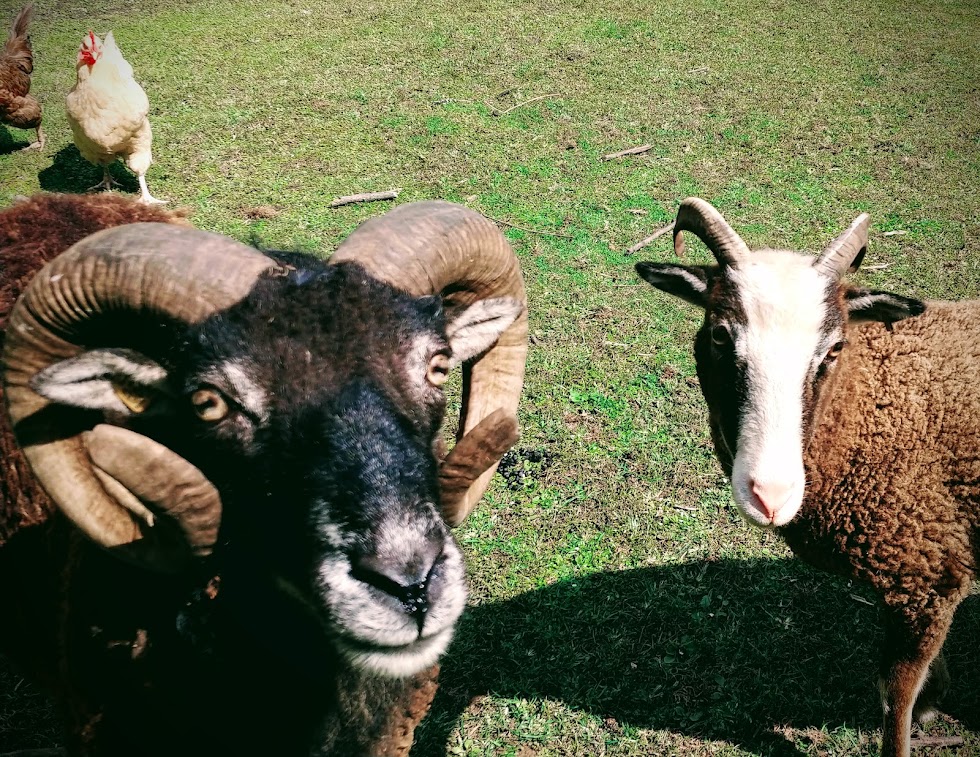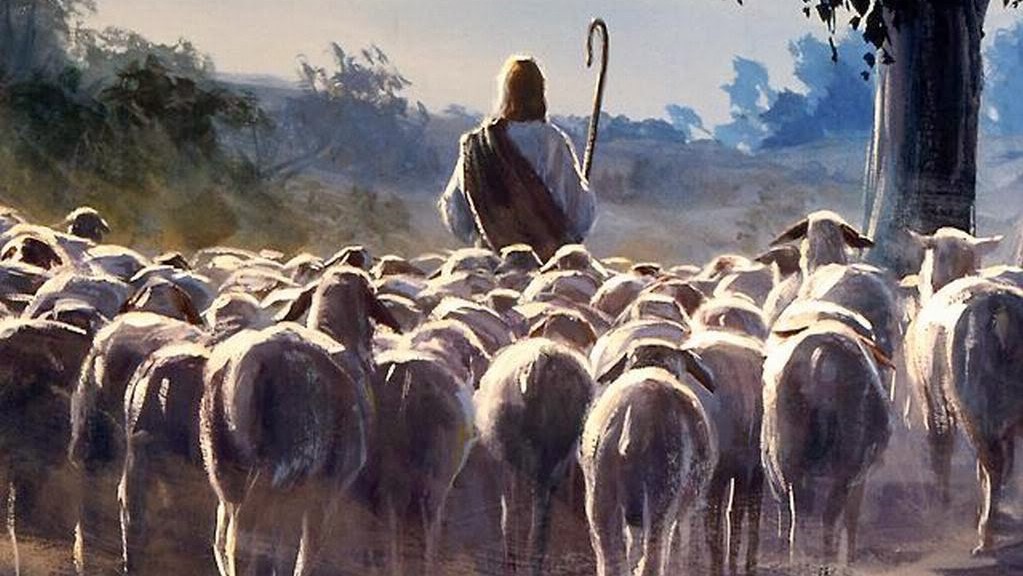The Shepherd & the Gate
4th Sunday of Easter

My family and I share our few acres of valley land with a small flock of heritage sheep called Soay. They are very low-maintenance breed, which fits our particular brand of shepherding just fine. But low-maintenance doesn’t mean no maintenance. They do need some caring for. That largely means protecting them from predators (we have a fence and a guardian donkey) and providing them with food (we give them hay in the winter when the grass goes dormant).
Because I take care of them, these naturally wary sheep have come to trust me. This makes working with them a lot easier. For example, when I need to corral them into their enclosure — called a sheepfold — to work with them, there are two ways to get them in: I can push them, or I can lead them.
Pushing them means approaching them from behind. Sheep are skittish creatures and will move away from someone they think might be a predator. If you limit their escape options, such as with fencing or other people, you can use this trait to force them to go where you want them to go. But this is not the ideal method. It stresses them out by making them feel like they are being hunted.
A much better method is to lead the sheep from the front. Because they know me (and associate me with food) all I have to do is walk across the pasture into the sheepfold and they calmly line up behind me and follow me in. This is much less stressful for both sheep and shepherd!

Jesus is our Good Shepherd.
In the gospel reading for this Sunday, Jesus describes himself as the good shepherd in these words: “He walks ahead of them, and the sheep follow him, because they recognize his voice” (Jn 10:4).
If Christ is our shepherd and we are his flock, then the sheepfold is a metaphor for heaven. As I just mentioned, there are two ways to get the sheep into the sheepfold: you can force them or you can lead them. Jesus wants the better way for us. That’s why he walks ahead of us and says “follow me.”
This is good for us to remember when things get difficult. When we struggle with habitual sin, or feel that we aren’t devout or virtuous enough, we can sometimes grow frustrated. We recognize the tendency of our own heart to turn away from God and go our own way. Like the “one lost sheep” in Jesus’ parable (Luke 15:4-7) we are prone to wander. We may even wonder why God gives us as much freedom as He does. Why doesn’t God use his omnipotence to simply make us be better people?
The answer is that God’s a shepherd and not a tyrant. He doesn’t want to push us into heaven. He wants to lead us there instead. Our shepherd walks in front of us and asks us to follow him, which requires our trust. I earned my sheep’s trust by feeding them; our Good Shepherd does the same. He feeds us with his own Body and Blood in the Eucharist.
I think Jesus must have missed the day in English class where we learned not to mix metaphors, because in this gospel passage he describes himself as both the shepherd who leads the sheep into the fold, as well as the gate through which they must pass. But with Jesus, this mixed metaphor is a true one. To lead us to heaven, our Shepherd leads us to and through Himself; through his passion, death and resurrection, or what we call the Paschal Mystery. This is what Jesus means when he says “I am the way” and “no one comes to the Father except through me” (Jn 14:6).
Jesus is the gate through which we must pass and the shepherd who leads us through that gate. He is the shepherd who feeds us along the journey. And ultimately Jesus is the One to whom we are going, for Christ is all in all (Col 3:11). Therefore let us trust our Good Shepherd to guide us into green pastures and fill our cup to overflowing with his mercy and kindness (cf. Ps 23). With the Lord as our shepherd, what else could we possibly want?

